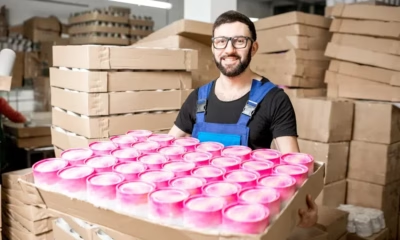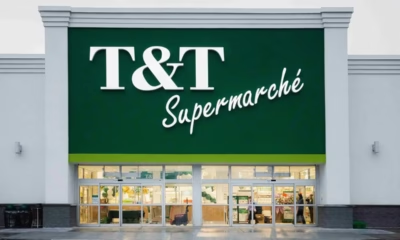Beverage
As Wine Sales Decline, Private Label Gains Attention

While the wine industry faces significant sales declines, private-label wines are emerging as a bright spot, offering retailers a growing opportunity to tap into consumer interest. According to industry experts at the Private Label Manufacturers Association (PLMA) Trade Show in Chicago, now is the ideal time for retailers to explore and expand their private-label wine offerings.
Key Trends in Private-Label Wine
- Private-label wine sales are on the rise, with a 12% increase over the latest 52-week period and a 15% year-to-date growth. This trend is even more significant compared to two years ago, where private-label wine sales have grown by 23%.
- Premiumization trend: Contrary to the stereotype that private-label wines are low-end, consumers are increasingly opting for premium private-label wines in the $15 to $20 range. This shift suggests that while consumers may be drinking less wine overall, they are choosing higher-quality options when they do purchase.
- Retailer Actions: Retailers have recognized this demand and are responding by expanding their private-label wine offerings. For example:
- Gelson’s Markets in Southern California added four wines to its Napa Valley collection.
- Albertsons launched its Vinafore and Bee Lightly private-label wine collections.
- Even Circle K entered the market, debuting a private-label wine line in 3,000 stores in May 2023.
The Appeal and Challenges of Private-Label Wine for Retailers
- Advantages: Private-label wines offer retailers greater control over branding, pricing, shelf positioning, and profit margins. These factors allow retailers to create a more personalized product offering that can differentiate them from national wine brands.
- Challenges: However, managing private-label wine involves careful strategy. Retailers must navigate the challenge of competing with well-established national brands that have strong emotional and storytelling connections with consumers. Taylor Rausch from Albertsons emphasized the importance of understanding consumer preferences through targeted merchandising, often testing and refining the product offering through trial and error.
- Branding and Storytelling: National brands often captivate consumers with stories about the vineyards and the wine’s origins. For private-label wines to succeed, they must also craft a compelling narrative that resonates with their target audience. As Jeff Siegel, wine writer and industry expert, pointed out, the key is to understand the audience and tailor the brand’s story to them.
Looking Ahead
As private-label wines continue to gain traction, the industry will likely see more grocery chains, convenience stores, and mass retailers leveraging their own wine labels to tap into the growing consumer demand for quality, affordable wine. This presents an opportunity for retailers to differentiate themselves in an increasingly competitive market by offering premium private-label options with unique stories and carefully crafted marketing strategies.





















